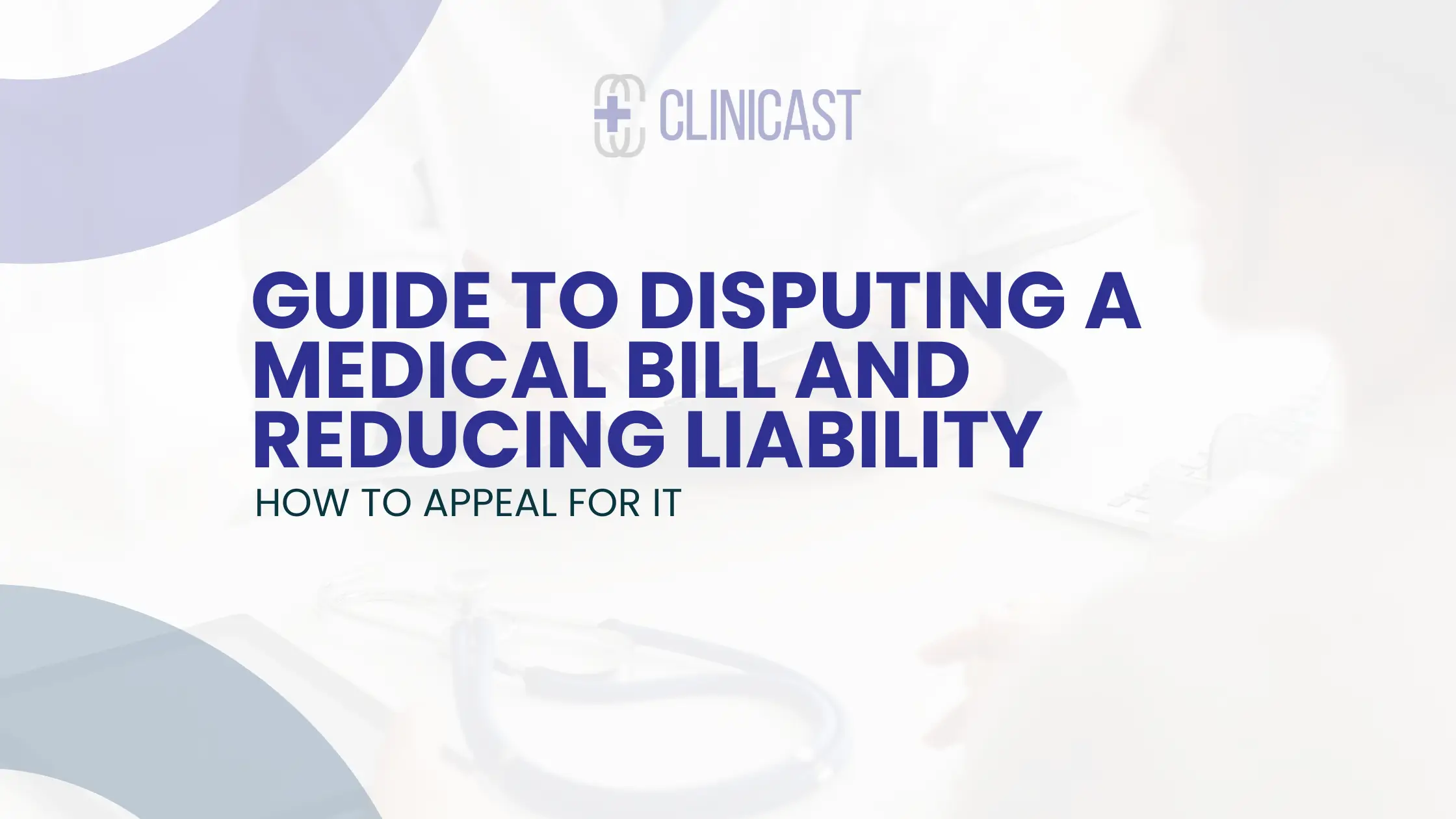If you have ever received a medical bill that you feel is inaccurate, you are not alone. In fact, it’s estimated that 80% of medical bills contain errors. According to a survey performed by Lending Tree in 2021, three out of four patients in the United States negotiated the amount of their medical debt while stating them inaccurate, whereas 98% of them succeeded in reducing their overcharged bill amount for preventive care.
Incorrect medical billing is a major problem in the United States, and it often leads to patients being overcharged or billed for services they did not receive.
Fortunately, there are steps you can take in disputing a medical bill and reducing your liability. This guide will show you how to dispute a medical bill and get the desired results.
How to dispute or appeal a medical bill

If you received a medical bill that you feel is inaccurate, you have the right to dispute it. You can contact the provider listed on the bill and explain why you believe the charges are incorrect. If you cannot reach an agreement with the provider, you can file a complaint with your state’s insurance commissioner or appeal with your insurance company.
Here’s a step-by-step guide on how to dispute or appeal a medical bill;
- Call the Healthcare Provider to ask about the overcharged bill
If you have received a bill that you believe to be higher than it should be, your first step should be to call the healthcare provider. You may be able to speak to someone in the billing department who can help answer your questions. You may be able to negotiate a lower price or get the charge removed entirely.
When you call, be sure to have all relevant information handy, including the date of service, the charge in question, and your insurance information. The customer service representative will likely ask you for this information so they can look into the matter.
If you’re not satisfied with the outcome of the call, you can always file a complaint with your state’s insurance regulator.
- Gather important documents to dispute a medical bill
If you are provided with a medical bill that you feel is inaccurate, you will want to take the necessary steps to dispute the bill. This process can be confusing and time-consuming, but it is important to ensure you are not overcharged for the medical services you receive.
The first step in disputing a medical bill is to gather all of the important documents that you will need. This includes the bill itself, prescriptions, diagnosis records, and any correspondence you have received from the medical provider. You will also want to gather any documentation regarding the medical services you received, such as a medical report or discharge papers. Once you have all of this documentation, you will be ready to start disputing the bill.
- Call the health insurance provider for a medical bill dispute
You should also contact your health insurance provider if you have a disputed medical bill. The customer service representative will be able to tell you why the insurance company denied the claim and give you instructions on how to appeal the decision.
It is important to remember that you have the right to appeal any decision made by your health insurance company. If you do not agree with the decision, you can make a formal complaint. The insurance company must investigate your complaint and respond within a certain time frame.
If you are still unsatisfied with the insurance company’s response, you can contact your state’s insurance department. The department will help you understand your rights and can mediate a dispute between you and the insurance company.
What to do if your medical appeal is denied?
If you’ve been denied medical coverage for a procedure or treatment, you have the right to appeal the decision. The first step is to request a written explanation of the decision from your insurance company. This will give you a better understanding of why your claim was denied and what you can do to appeal the decision.
Once you have the written explanation, you can file an appeal with your insurance company. Be sure to include any new information or evidence that you have that may help your case. You will then have a chance to present your case to a panel of representatives from your insurance company.
If your appeal is still denied, you have the right to take your case to external review. An independent panel of experts will review your case and make a decision on whether or not to overturn the denial of coverage.
What to avoid while disputing a medical claim?
When disputing a medical claim, there are a few things you should avoid doing in order to give yourself the best chance at a successful outcome. First, avoid getting emotional. This can be difficult, especially if you feel like you’ve been overcharged or the bill is inaccurate. It’s important to remember that the person you’re speaking to is likely not responsible for the error, and getting angry will only make it harder to get the resolution you’re looking for.
Second, avoid making threats. Again, this can be difficult, especially if you’re feeling frustrated, but making threats will only make the person you’re speaking to less likely to help you. Instead, try to remain calm and polite and explain the situation clearly.
On the other hand, if your provider has already sent your case to a collection agency, the number of phone calls to follow up on debt collection can be increased. Unpaid debts automatically hurt your credit score; this is why negotiating on the amount and considering communication over being emotionally drawn will more likely help you in getting over the situation quickly.
Conclusion
Receiving an overcharged medical bill can be stressful. However, knowing the right steps to proceed in the right direction is necessary. These steps can help you get away with medical debt and reduce the chance of hurting your credit score.
Often, medical bills are overcharged because of the changing guidelines of medical billing. Still, by keeping a record of services such as out-of-network preventive services and services associated with COVID-19, bills can be disputed, and liability can be reduced and resolved. However, you should always look for coding errors in your medical bills to avoid extra medical burdens in the future.



